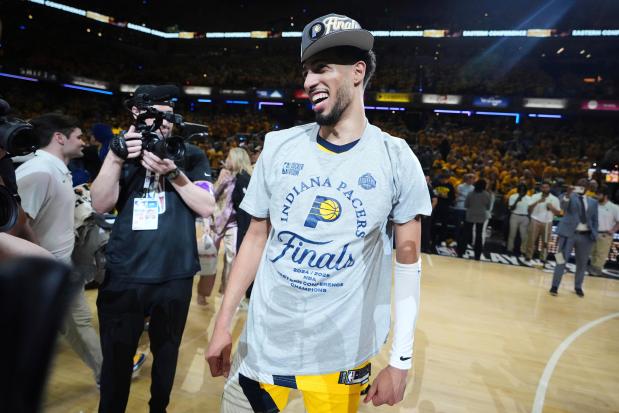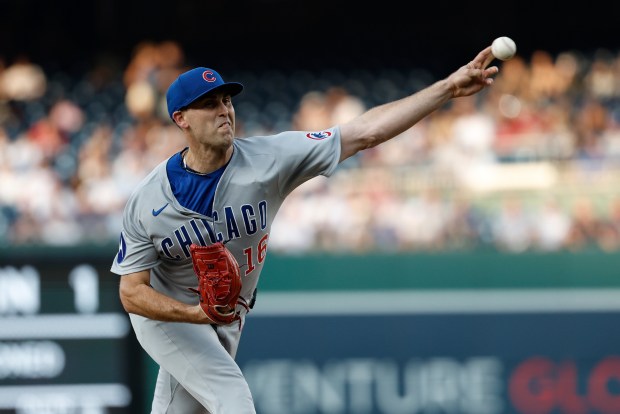As the dust settles on Springfield lawmakers punting the issue of CTA’s looming fiscal cliff, Mayor Brandon Johnson has a message: keep the faith.
The mayor in his weekly City Hall news conference Tuesday reacted to the local alarm over the Illinois General Assembly adjourning this weekend without a solution to the estimated $771 million budget gap for Chicago area transit agencies with a measured, though at times defensive, tone. He again argued the “resources are there” to bail out the CTA while acknowledging time is running out for state legislators to act.
“I’m going to always remain hopeful and confident that we can get a deal done that works for the people of Chicago,” the mayor told reporters.
Illinois lawmakers concluded their spring session on Sunday after passing a $55 billion budget for the next fiscal year but without shoring up much-needed revenue for the transit budget gap. Though state legislators still have time to work out a solution before that shortfall comes home to roost next year, transit advocates expressed disappointment at how negotiations fell apart despite years of warnings about the fiscal conundrum.
Some pointed the finger at the mayor.
North Side Ald. Andre Vasquez, 40th, rattled off a long list of what he said were transit-related missteps for which Johnson wears the hat. Vasquez noted the mayor resisted earlier calls to fire ex-CTA president Dorval Carter, has yet to pick Carter’s replacement and has made controversial pastor appointments to the local transit board.
“All those things lead to less and less confidence, and it all speaks to the leadership that was there at the time, which was Dorval and was Johnson,” Vasquez said. “(That) actually makes it harder to have the conversation about funding, which is why it became such a governance conversation.”
Johnson on Tuesday dismissed the idea that his leadership choices hampered the CTA’s cause in Springfield. “It’s a poor analysis,” the mayor said.
Frustrated with the surfeit of CTA service complaints over the last few years, Springfield leaders heading the transit bill discussions this spring session adopted a “no funding without reform” message. Led by Illinois Senate transportation committee chair Ram Villivalam, a Chicago Democrat, the refrain reflected how state lawmakers were hard-pressed to bail out the transit agency with Carter still in charge and were mulling whether to reduce the mayor’s influence over local transit governance structure.
Johnson in January likened that attitude to holding Chicago “hostage,” though Carter would announce his retirement later that month. The mayor has said his office undertook a national search for Carter’s permanent successor, but it’s not clear exactly what that search entailed and it appears to have fallen short.
Johnson’s chief operating officer John Roberson was floated this spring, but the potential appointment was met with pushback from local transit advocates who demanded a more open search process. Three members of the CTA board said last month they also supported a more thorough search, signaling potential further opposition to Johnson’s plans.
The mayor reiterated Tuesday that he has not yet picked the next CTA president and did not answer a question on whether he will make that decision before Springfield finalizes its transit package.
State rep. Kam Buckner, one of the budget negotiators in the Illinois House, was more measured in his feedback, which hinged on the belief that Johnson didn’t fully utilize the bully pulpit of the mayor’s office to call attention to the urgency for CTA riders.
“I’m not sure why it wasn’t as important to the (Johnson) administration, but the good thing about where we are right now is there’s a chance to reset,” Buckner, a Chicago Democrat, said. “Chicago has to decide whether or not they’re going to let transit reform happen with them or happen to them. … I do want the mayor’s office to be more present in these conversations.”
Johnson did not betray a position on the specifics of the delivery tax or the governance changes in the transit proposal that fell apart in the House this weekend. He instead focused on saying the state needs to tax the “ultra-rich.”
“I don’t think anybody will speculate over my belief of where the revenue should come from,” the mayor said when asked if he needs to show a more visible presence in Springfield when it comes to revenue talks.
To be clear, in the often-evolving, last-minute nature of Springfield dealmaking, lawmakers are certainly used to running up against the clock. And the COVID-19 stimulus funds that kept these Chicago area agencies afloat don’t expire until the end of this year.
Still, the Regional Transportation Authority, which oversees CTA, Metra and Pace, has warned of a 40% reduction in transit service, with some rail lines and bus routes eliminated entirely, should the agencies indeed tumble over the edge of the fiscal cliff. Any legislation passed after May 31 that would take effect before June 2026 would also need a three-fifths majority in both chambers, too.
Meanwhile, Gov. JB Pritzker said Sunday that his office was not leading the charge of transit reforms and funding solutions but he thinks there needs to be significant work in the summer and fall to get them passed.
He also took a jab at the RTA for a $750,000 advertising effort to implore lawmakers to set more money aside for mass transit.
“I also would say that they’d have more money in their coffers if they hadn’t spent money advertising here in Springfield to try to convince people of something that they really should be leaving to the legislators to decide,” the governor said during a news conference at the State Capitol.
In a Tuesday statement, RTA spokesperson Tina Fassett Smith referenced her comments last month that the goal of the campaign was to raise awareness and “motivate people to contact their legislators about the positive impact transit has on their lives and communities, and why it needs to be sustainably funded.”
“Taking this from the eleventh hour to what’s going to feel like 11:45 p.m. is frustrating,” Ald. Daniel La Spata, 1st, said. “It makes me really anxious, how close to the cliff it seems like we’re going to take this … I hope that (Johnson) recognizes how mission-critical this is to the health in the city.”
The Senate this weekend narrowly approved Villivalam’s proposal to both overhaul governance and increase funding for Chicago-area mass transit. The plan included a $1.50 fee on retail deliveries including food, which replaced an earlier proposal to increase tolls on Chicago-area toll roads. But the House adjourned without taking up the measure, amid swift opposition from business groups.
Villivalam didn’t betray any regret on Monday, however. “From the beginning, we have said there will be no funding without reform,” he wrote in a statement that vowed to “get this package of reforms and funding across the finish line.”
Illinois House Speaker Chris Welch told reporters Tuesday that beyond his caucus’ trepidation over the taxes piece, “there’s still some disagreement on what … that governance board would look like.”
“We said from day one throughout the entire process that we wanted to make sure reform came before funding,” Welch said. “We cannot ask taxpayers to put money into a failing system.”
Vasquez, also vice chair of City Council Transportation Committee, said he plans to drive home the high stakes during the next quarterly CTA leadership hearing at the end of this month. But he wasn’t fully convinced the mayor should have taken a more visible role in lobbying state lawmakers on transit.
“I don’t know, and it’s actually pretty unfortunate that we don’t know, if it would have had a worse effect,” Vasquez said.
The Tribune’s Talia Soglin contributed reporting.




